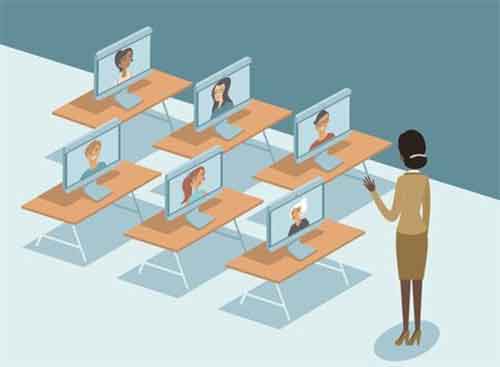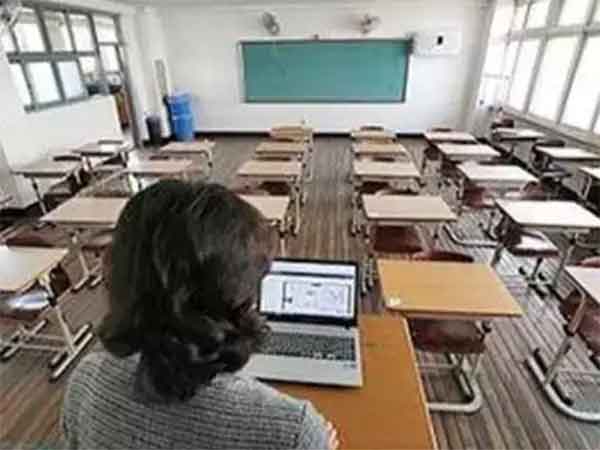
Delhi University seems to have been changing its stance every day in the High Court as petitions challenging the Online Open Book Exams are being heard. Meanwhile, even University Grants Commission revised its guidelines, taking a complete U-turn, recommending universities to conduct exams. Alongside the Covid-panic, confusion and paranoia have become constants in the lives of students. The ongoing petitions in the court and public discussions have been contesting the ‘online’ mode of examination as being inaccessible, completely forgetting that the benefits of teaching-learning process during the lockdown were accessed unevenly due to various factors. The problem of lies in higher education policies being oblivious to the very purpose of public universities and being wilfully negligent of structural oppression on bases of caste, gender, sexual orientation, region, religion, class, language, disability. The lockdown has complicated the existing inequalities even further by impacting lives of the vulnerable groups disproportionately, adversely affecting the mental, emotional and physical health. However, such pertinent factors are never considered worth examining and this exposes the inherent flaw in our imagination of a student studying in a public university; the inherent flaw of presumption of privilege while making education policies. The expert recommendations and policies are guided by the imagery of a student with caste, class, gender privilege in an urban setting; this idea of a student and this presumption of privilege annihilates the very purpose of a public university.
‘Online’ Open ‘Book’ Exams are ‘Optional’
An online exam presumes access to high-speed internet, smart phones, latest laptops, printers and scanners, open book exam presumes possession of study material and an optional exam presumes free choice. Even at one of the most premier institutes of law, the Faculty of Law, DU, students had no access to their primary course material which got printed only on the 5th of June, 2020. Most non-Delhi residents were in their hometowns for mid-semester break without most reading material when the lockdown was announced. There is no possibility for students to access voluminous and expensive books found generally in the library, and with insufficient university sponsored e-resources, only those who can afford these books, have means to get them printed or have academic libraries at home can truly appear for an ‘open book’ online exam.
After acknowledging the inaccessibility and insensitivity of a compulsory online exam, DU made them ‘optional’, deciding to provide those unable to appear online with offline exams contingent upon reopening of universities. What is projected to spare students the inconvenience or disadvantage will actually end up disadvantaging a student twice. A student who could not attend online classes, suffering academically, is now also also likely to miss out on several educational and employment opportunities because of graduating months after their counterparts. Adding insult to injury, calling an unequal bargain an option for those who do not have the luxury to appear for online exams. It is ‘optional’ only for the privileged few who have the means to appear for online exams and can exercise free choice whether or not to.
Erasure of Vulnerabilities
The problems with the idea of exams are being dealt with selectively, digital divide being only one the many issues which persist. The notifications and guidelines, statements by officials and arguments in the High Court, are frequently displaying insensitivity towards the experience of this pandemic lockdown for a student. Administrative decisions have actively peripheralised students’ interests, making policy mechanically, removed from realities. The decision makers presumed an able-bodied student with access to technology, a room to themselves with peace and privacy, a family that enables an environment to study, a life with no responsibility of household chores or financial stress, a home with no violence, abuse and toxicity, a locality with life of dignity, no fear of persecution or incarceration, and with loved ones being immune to the pandemic. It is amusing that there is a presumption of an absolute health, safety and privilege student, especially in what is called “extra-ordinary” times. An approach which is oblivious to multiple realities and struggles students can never be student-friendly.
The Fixation with Exams
Exams presume regular and accessible classes. The reason behind change in UGC’s stance and multiple overnight decisions of the DU is unknown. However, it is ironic that expert committees and universities have spent months deliberating the mode of examination but not didn’t invest in efforts to make classes, study material and other resources accessible to all students. Without a common, reachable online platform for all, classes were being tried via Zoom App, Google Classroom, Discord, WhatsApp voice messages etc, and before the confusion could settle, most courses had been completed. Neglecting the disparities and vulnerabilities of students, constant attempts have been made to provide superficial “quick fixes” to only exam related problems. The frenzy around conducting exams is deeply embedded in the conservative paradigm that measures knowledge through orthodox standards and understands education primarily through examination. It is clear that exams are a priority where it is impossible to detach knowledge with traditional evaluation systems. Exams, in these times, can be only be a test for disparity and not a method for assessment. The frenzy around conducting exams is deeply embedded in the conservative paradigm that measures knowledge through orthodox standards and understands education primarily through traditional evaluation systems. Exams, in the current scenario, can be only be a yardstick to test disparity and not a method of academic assessment.
Moreover, with some subjects taught and the others not, the loss of access to support groups, library books and university environment make matters worse. Exams serve no purpose and will only be for namesake. If universities could not fulfil their duty to teaching-learning accessible, what will exams even achieve? The latest SOP Issued by the UGC directs movement of students with ID/admit cards to be allowed and all safety precautions to be taken at the examination hall. The UGC is hell bent on exams, even if it means exposing students to the high risk of contracting the virus. The bureaucratic apathy is not limited to emotional and mental health of a student but also their physical well-being. What is the issue with cancelling exams as an extraordinary measure? The anxiety of students free riding- getting degrees without taking exams and- comes from the casteist understanding of ‘merit’ which is entrenched in our education system; a system that considers marks as an evidence for hard work and education as a reward, not a right. The current fixation with exams and marking a definite end of a degree programme is completely meaningless and the students from marginalised sections will have to bear the burden of this enforced institutional normalcy.
‘Public’ Universities
From Savitribai and Jyotiba Phule’s fight to the ongoing students’ movements, equal access to education has had a long history of struggle to break the monopoly over education maintained by the caste-order. Social Justice and equality must be the guiding principles of education system. The monolithic imagination of a student and the presumption of their privilege is antithetical to the very idea and existence of a public university. Public universities must ensure protection of right to equal access to higher education for all at all times. UGC and DU conveniently adopted an apathetic, arbitrary and a high-handed bureaucratic decision making process, forgetting that it is their responsibility to be cognisant of the needs of the most marginalised groups of students and act in the best of their interests. What is happening is not just a clear disservice to the purpose of public education but also violation of Right to Equality. Extra-ordinariness of times can not be a justification for discriminatory policies. Education policies which keep social hierarchies alive and force students to relive them everyday need to be abolished. The idea of exams being one of them, needs to go and in case of no alternative methods of assessment, there should be no assessment for this semester at all.
The need is to re-think the meaning of education and re-imagine it in an empathetic manner so that it becomes accessible and empowering rather than a cause of perpetuation of systemic oppression.
Somaya Gupta is a student activist, currently studying law at the Campus Law Centre, Faculty of Law, Delhi University.
SIGN UP FOR COUNTERCURRENTS DAILY NEWSLETTER
















































